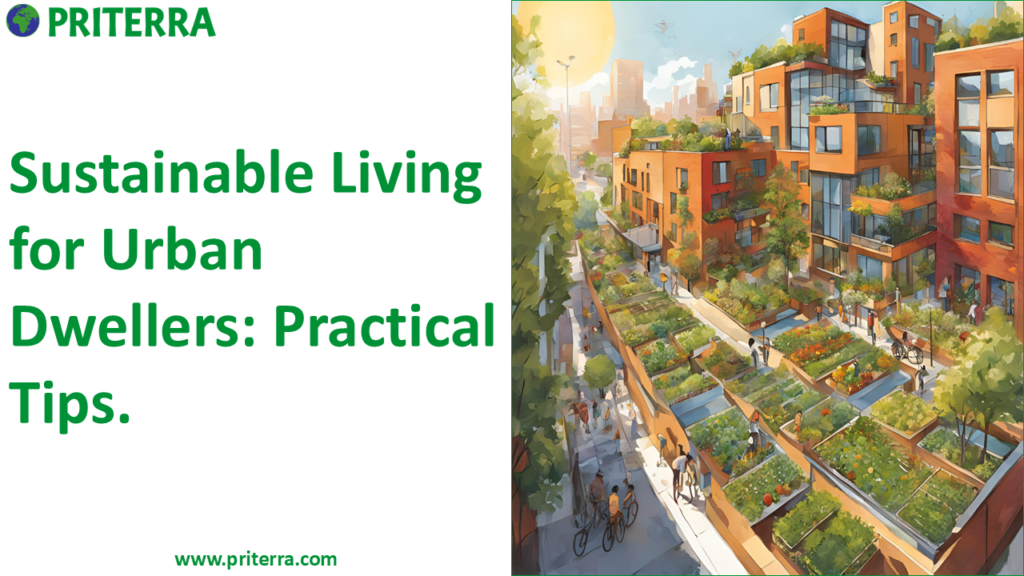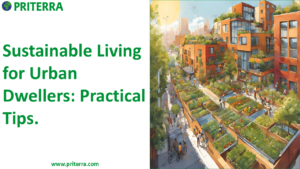Living sustainably in an urban setting can be rather challenging, but with a little creativity, it is totally doable. Here are some practical tips for living sustainably in the city:
- Use Public Transportation: Most cities have an expansive public transportation system. Use buses, trams, subways, or bike-sharing programs to reduce your carbon footprint. If you need to drive, share a ride.
- Grow Your Own Greens: Even in the smallest spaces, you can grow herbs, vegetables, or small plants. You can use your balcony, windowsill, or a small indoor garden. Urban spaces are also great for vertical gardens and container gardening.
- Buy Local and Seasonal Produce: Support local farmers’ markets and buy seasonal produce. This reduces the carbon footprint associated with transporting food long distances and supports the local economy.
- Reduce, Reuse, Recycle: Be diligent about recycling and composting. Reduce waste by reusing items and opting for products with minimal packaging. Consider setting up a compost bin for food scraps.
- Adopt Energy-Efficient Habits: Change to energy-efficient appliances and LED lighting. Switch off electronics when not in use, and try to make the most of natural light. Install a smart thermostat to optimize your energy use.
- Support Sustainable Businesses: Purchase from companies that prioritize sustainability and ethical practices. Look for certifications such as Fair Trade, Organic, and Energy Star.
- Minimize Plastic Use: Carry reusable bags, water bottles, and coffee cups. Avoid single-use plastics and opt for alternatives like glass, metal, or biodegradable materials.
- Water Conservation: Install low-flow showerheads and faucets to reduce water use. Fix any leaks promptly and use water-efficient appliances. Collect rainwater for gardening, if possible.
- Eco-Friendly Cleaning: Use natural, non-toxic cleaning products. You can even make your own cleaners using ingredients like vinegar, baking soda, and lemon juice.
- Join or support local environmental groups, community gardens, and sustainability programs. Engage with your community to advocate for greener practices and policies.
- Reduce Meat Consumption: Adopt a plant-based diet or reduce your meat consumption. The production of meat, particularly beef, has a significant environmental impact compared to plant-based foods.
- Conscious Consumption: Think carefully about your purchases. Buy second-hand items when possible, and choose high-quality, durable goods that will last longer.
By incorporating these tips into your daily life, you can make a significant positive impact on the environment while living in an urban area. Small changes can add up to make a big difference!


